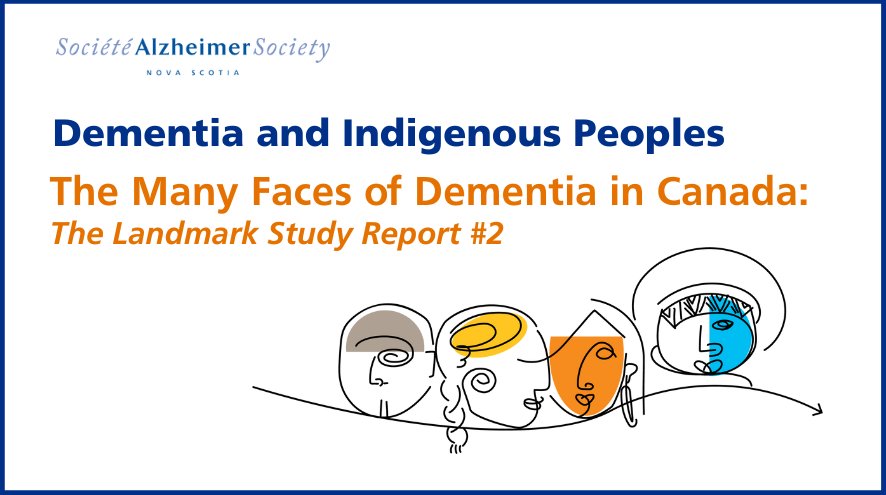Truth & Reconciliation Day: The Many Faces of Dementia in Canada
Learn more about Dementia and Indigenous Peoples.

In January, the Alzheimer Society of Canada released the second volume of the Landmark Study, The Many Faces of Dementia in Canada.
Over the next months, we will continue to release education pages on each chapter. You'll have the opportunity to learn more about this study, what it means for Nova Scotians, and what resources are available to help.
We will share local statistics, identify resources, and hear from Nova Scotians about ways in which their cultures and social identities are related to their experience on the dementia journey.
Today, in recognition of Truth & Reconciliation Day, we’re talking about Chapter 2, Dementia and Indigenous Peoples, (read the chapter here). This chapter confirms that dementia is a growing public health issue for Indigenous Peoples in Canada. Research indicates higher rates of dementia among Indigenous populations when compared to the general public. Indigenous Peoples also face challenges accessing health-care services and receiving supports.
Colonialism is a root factor of dementia risk and other health problems in Indigenous populations. Risk factors for dementia are also strongly impacted by social determinants of health; the resulting stress and racism affect both brain health and access to health care. An Indigenous determinants of health model clarifies the interconnection between health and social factors. The model looks at systems, and the complex web of associations between individual and social factors that exist for the health of all people.
The Report calls for Indigenous-centred and Indigenous-led research, and culturally safe dementia resources and health care services. This chapter includes a graphic mapping the problem of Indigenous-specific racism in healthcare and suggests ways to break the cycle. It closes with the stories of Inuit, First Nations and Métis resilience in the face of dementia.
“Startling increases of dementia amongst Indigenous peoples and the multi-facet reasons as to why are outlined in Landmark 2,” says Vanessa Nevin, Director of Health, Atlantic Policy Congress of First Nations Chiefs Secretariat. “Indigenous people living with dementia and their families need supports and services that are grounded in culture, language, and access to our traditional foods, while also seeking medical model treatments that understand our distinct needs.”
Click here for a fact sheet about Chapter 2, where you can learn more about the numbers and statistics.
Learn more about Dementia and Indigenous Peoples:
- Indigenous Peoples & Dementia (Nova Scotia-specific)
- Fact sheets for Indigenous Peoples (I-CAARE)
- (VIDEO) A conversation on Indigenous Peoples and dementia
- Aging and Dementia (Native Women's Association of Canada)
- Living My Culture (Canadian Virtual Hospice)
- The circle of life: Indigenous knowledge about dementia in Canada (Alzheimer's Disease International)
- Alzheimer’s Disease and Related Dementias in Indigenous Populations: Knowledge, Needs, and Gaps (NCCIH-CCNSA)
- Dementia Information for Indigenous Peoples: First nations, Métis and Inuit
Stay tuned for our next blog in November where we will be looking at Chapter 5, Young Onset Dementia: Distinct Challenges.
If you see yourself in this report, or are a community organization or healthcare provider and have suggestions on how we can better support you and your community, we invite you to contact us by email at alzheimer@asns.ca or phone at 1-800-611-6345.
Learn more about Chapter 2 of the Landmark Study, The Many Faces of Dementia in Canada, here.
